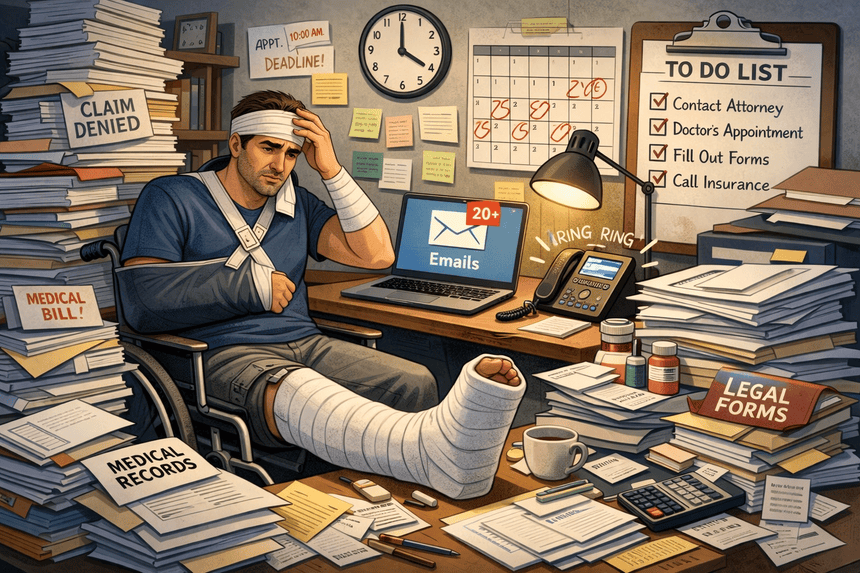Over the past decade, there’s been a significant shift in how mental health is viewed—not just socially, but legally and financially too. In Brisbane, more people are beginning to understand that mental health conditions can be just as disabling as physical injuries when it comes to work capacity. And that’s where TPD claims in Brisbane come into play.
TPD, or Total and Permanent Disability insurance, was once largely associated with visible injuries. But now, psychological conditions such as major depression, PTSD, anxiety disorders, and bipolar disorder are increasingly recognised under many superannuation-linked TPD policies.
Keep reading this article to learn more about a TPD claim for a mental health condition.
What is TPD, and how does it apply to mental health?
TPD insurance provides a lump-sum payment if you’re no longer able to work due to illness or injury, including mental illness. This is typically accessed through their superannuation fund. While each policy differs slightly, most define TPD as the inability to return to your usual occupation or any occupation suited to your experience, education, or training.
Mental health claims are growing, yet they often face heavier scrutiny. This is because psychological conditions don’t always show up in a scan or blood test. They’re invisible—subjective, nuanced, and deeply personal.
Still, under the right circumstances, they qualify. If your condition prevents you from working indefinitely, you could be eligible for a TPD claim in Brisbane.
Which conditions are typically covered?
A significant number of mental health conditions can satisfy the criteria for Total and Permanent Disability (TPD). Some of the more commonly accepted ones include:
- Major depressive disorder
- Generalised anxiety disorder
- Post-traumatic stress disorder (PTSD)
- Bipolar disorder
- Schizophrenia and related psychoses
Each claim is considered on its own merits. A diagnosis alone isn’t enough; the focus is on how the condition impacts your ability to work, now and into the foreseeable future. Detailed medical evidence and a clear explanation of these limitations are crucial for a thorough evaluation.
What makes someone eligible?
At the core, it’s about work incapacity. If your mental health condition means you can no longer return to your previous job—or any other role you’re reasonably qualified for—you may be eligible. But that’s only part of the puzzle.
To support your claim, you’ll need:
- Comprehensive medical reports
- Assessments from a treating psychologist or psychiatrist
- Confirmation that your condition is permanent and not expected to improve
Importantly, your medical team needs to demonstrate that your inability to work is not only current but ongoing. This is where consistency in treatment and documentation is crucial.
Why are mental health TPD claims so tough?
Mental health claims are some of the most heavily challenged by insurers. The symptoms can be fluctuating. There’s often no clear ‘start’ or ‘end’ point. And without tangible medical evidence like X-rays or surgical records, it becomes more about proof and persistence.
Insurers may argue that with the right therapy or medication, you could return to work. This is why regular treatment with mental health professionals is vital—not just for your wellbeing, but for documenting your condition’s impact. The more detailed and consistent your medical records, the better your chances.
How TPD lawyers in Brisbane can help?
Given the complexities, it’s not surprising that many people turn to legal professionals for support. Experienced TPD lawyers in Brisbane don’t just file paperwork, they guide you through the emotional and technical aspects of your claim.
They’ll help:
- Interpret your policy definitions.
- Gather and present specialist reports.
- Respond to insurer pushback.
- Ensure deadlines are met.
- Represent you if the claim is initially denied.
Even with a strong case, navigating the process alone can be exhausting. Having someone who understands the system and who’s on your side can make a world of difference.
Don’t forget the fine print: Time limits and policy variations
Each superannuation fund has its definition of TPD and different timeframes for lodging a claim. If you miss these deadlines, you could lose your right to claim altogether. It’s vital to review your fund’s terms early on and act quickly, especially if you’re already struggling with your mental health.
Conclusion:
Mental health TPD claims in Brisbane are entirely valid but can be incredibly difficult to navigate. From understanding your eligibility to collecting strong evidence and dealing with insurers, it’s a process that demands clarity, persistence, and often professional support.
If your mental health condition has left you unable to work, you do have options. A successful claim can offer not just financial relief but a sense of validation that your struggle is real and recognised. Working with the right legal and mental health professionals gives you the best shot at a fair and timely outcome. And that’s something worth fighting for.









